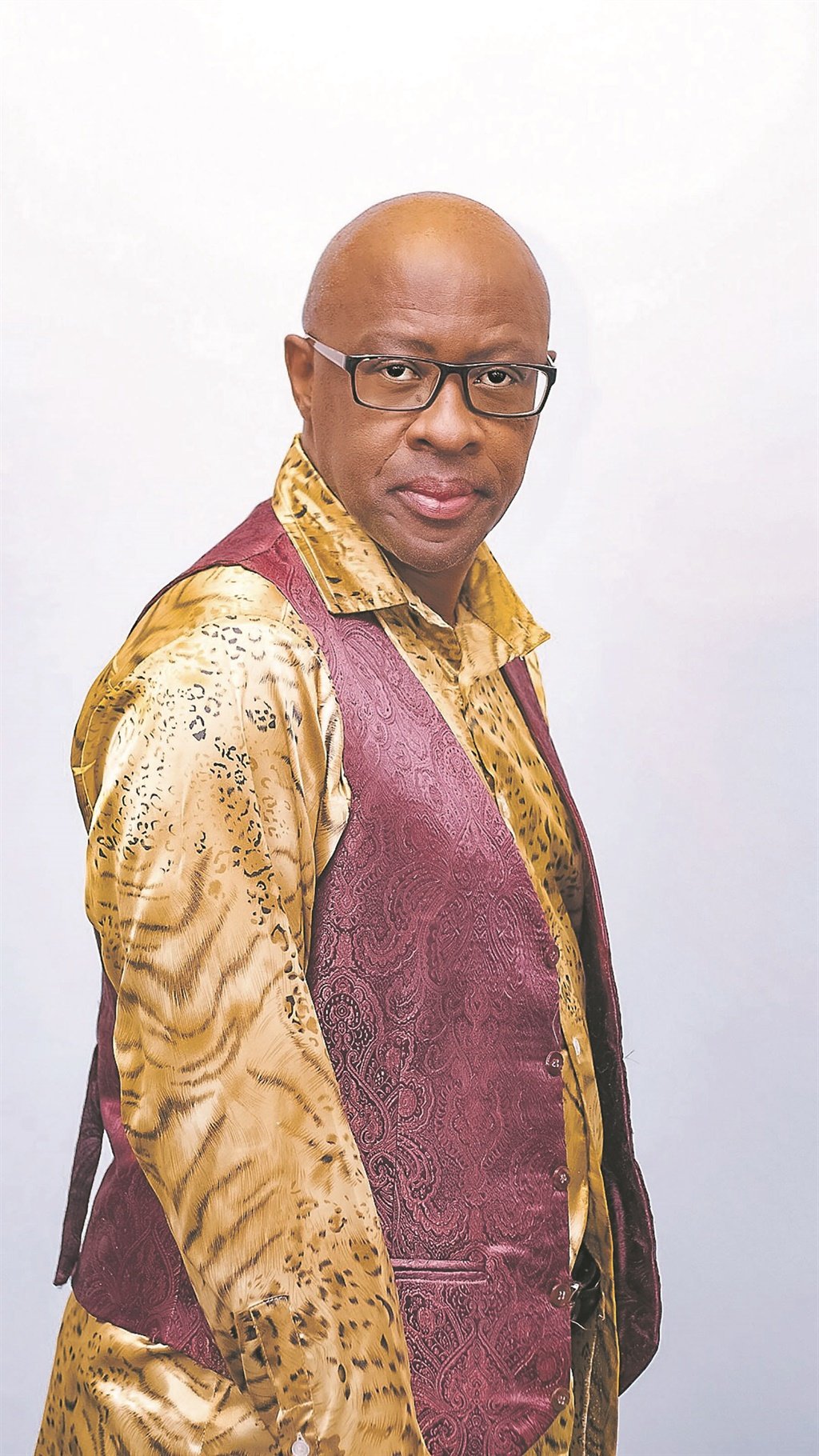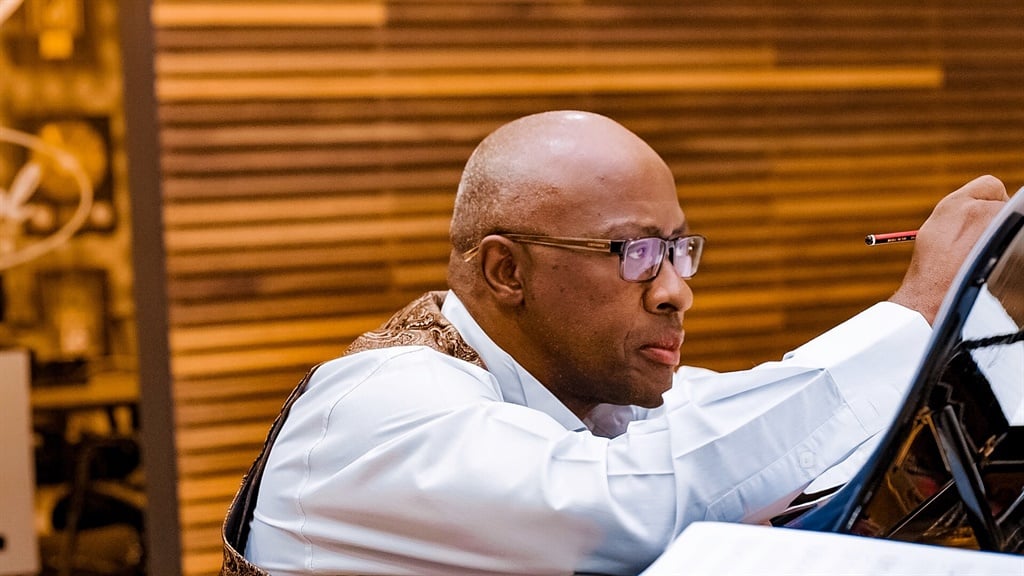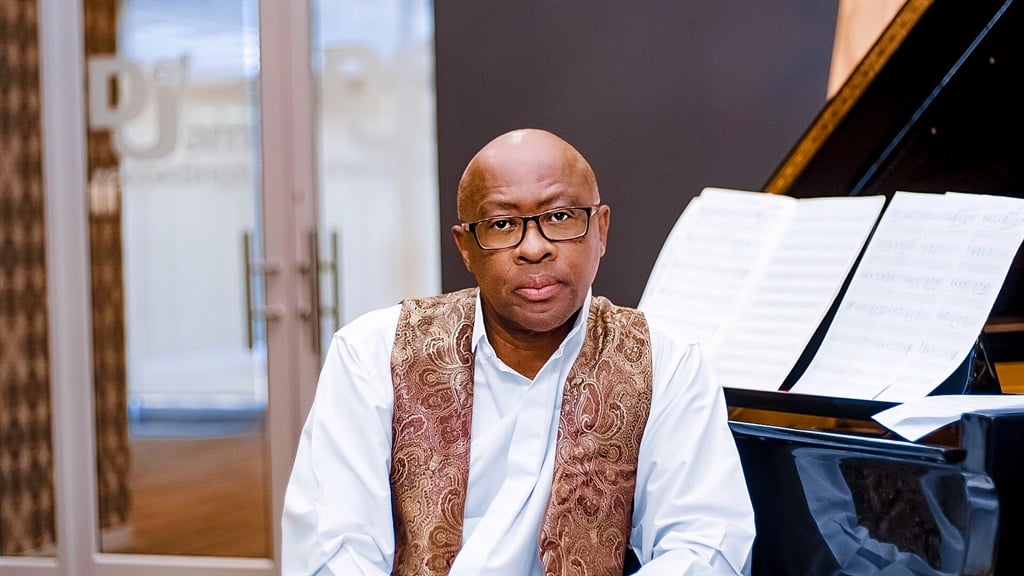
He’s had a four-decade music career in which he rekindled SA’s jazz scene and even helped give birth to kwaito. And now, after a eight-year hiatus, Don Laka has brought out a new album.
Mondli Makhanya sat down with him at the City Press offices to delve into his journey
Earlier this year, after an eight-year hiatus from recording, Don Laka felt the time was right to get back to making new music.
So, one morning he woke up and decided this was the day. At 6am, without his regular process of composition routines, he sat down at his piano and the music flowed from his heart to his fingers and on to the keyboard. He sat there and track after track just came, unscripted and unprepared.
“By 11, 12 [o’clock] I had five. I said: ‘Whoa, stop right there, let me review.’ Then I listened to it and I said ‘these melodies are great, honest and, yes, a full album’,” he tells me about one of the most unconventional episodes of his more than four decade music career.
The following day he worked on five more tracks, and on the third day the last track was created.
That was the birth of Passion, an 11-song album that can serve just as well as a coastal drive companion as it can as a summer vibe accelerator.
What was more astounding with this experience, Laka says, is that when his co-musicians came in with various instruments to do the actual arrangement and recording, the chronology of the songs remained the same as the way they had been composed.
“I opened the file and said: ‘These are the first two that we do.’ We recorded the first two and the third one and it just went on like that. I thought at the end when this is done I’ll just say: ‘After the first one this follows the slow one.’ I didn’t work that way. I just left it and said ‘Well’!” he tells me, shrugging.
And that is exactly how the album came out, flowing seamlessly from one ballad at the beginning to varied sounds in the middle and ending with the ballad.
“As you hear, this is how they came … I’ve never done this before and I don’t know how many musicians work this way.”
Laka’s return from self-imposed recording exile came as he entered his 60th year on the planet. A still youthful sexagenarian, Laka feels the past eight years helped him perfect, in his mind, the album he had been dreaming about doing.
In a philosophical grey-head way he says turning 60 and releasing Passion marks a new phase in his life. This work, he says, “reflects on many things that I was and that I hope to be and that I want to be”.
Whereas previous albums were loyal to certain concepts, this one breaks the rules.
“This one doesn’t follow a symphonic theme. It is a culmination of what one has done and I’ll say I have perfected what I have been dreaming of doing [on this album]. That is why I call it Passion.”
THE JOURNEY TO PASSION
For those unfortunate enough not to have experienced the times when music was made with real instruments rather than digital manipulation, Laka’s work lit up jazz sessions, dance floors and fired up conversations in the times of depression and repression. He was one of those musicians who could reflect on the human condition in the country while also lifting spirits through songs of love and joy.
Whether working with other iconic artists such as Hugh Masekela, Sibongile Khumalo, David Bowie or Sipho “Hotstix” Mabuse, or with bands such as Sakhile and Sankomota, and whether he was collaborating or producing, Laka has been this ubiquitous presence. It would not be a stretch to describe him as one of the most influential figures in this country’s music scene.
Today Laka is associated with the piano, the basis of his compositions and the emblem of his trademark tunes. But it was not always that way. His initial training and early career was with the guitar.
Formally schooled in music, he immersed himself in traditional American jazz and a potpourri of other genres. It was a chance encounter with Abdullah Ibrahim (then Dollar Brand) in Lenasia, Johannesburg, while Laka was playing bass guitar for a pop group, that turned him to piano.
He recalls how, when they walked in for a sound check, they found Ibrahim – who would be playing at the same gig – preparing for his session on his piano.
“I sat there mesmerised, listening to this man playing this piano. It blew me away and I decided this is what I want to do.”
That moment inspired him to deepen his music beyond his formal training and playing experience.
He dived into understanding South African genres such as kwela, marabi and ghoema, which were right in front of him. He already had the advantage of having grown up in Mamelodi – a stone’s throw away from Kippie Moeketsi – and had had occasion to be invited into the living room of the great man, where he got a special performance.
“Imagine you are sitting with Charlie Parker in the same room and he is playing for you. That is the feeling I had at that time.”
Those early experiences at the feet of the master, the later exploration of indigenous genres plus his music theory training, helped the ever-curious Laka build his own distinct style.
What followed was a decorated career of 10 albums packed with songs that carried his unique imprint and couldn’t quite be pigeonholed into a genre.
“People would try to label me and say ‘he plays jazz ... he doesn’t play jazz’. I’ve never had a problem with what people [define my music as].”
Of those albums, Destiny, released in 1997, stood out. At the time South Africa was a gold mine of talent and rich in the tradition, but there was a drought of new jazz and the genre needed a push. The popular reception of Destiny saw recording houses that had previously been nervous about signing jazz artists throw caution to the wind. A revival was on the cards.
What followed was a raft of albums of a genre called kwai jazz, a fusion of the kwaito brand that Laka had helped birth in 1994.
And then silence. Eight years of it.
“I stopped doing albums in this country because I thought the support from radio was no longer there, and I would rather do something else. I said I’d rather take a break.”
Besides producing other musicians through the Kalawa Jazmee stable, he released two collaborations abroad, geared for an overseas market. He also journeyed through the continent researching a book about the understated or suppressed contribution of Africans to civilisation. The product was Re-introduction To African History; Know Thyself.
During this time he also worked with Masekela to produce the Jabulani album. This cemented their bond.
REIGNITING THE SCENE, AGAIN
As his three-score birthday was approaching, Laka convinced himself to do something that would, like Destiny did in 1997, help reignite the jazz scene. He believed that would be “the best present for me to turn 60”. He describes Passion as “a very honest album” that “reflects my inner intentions”.
He says the title track made him vulnerable “in terms of people seeing through me”.
Fortunately radio stations are now playing a great deal of South African music of their own volition, which makes the timing right. He says many of his peers who were throwing in the towel are now returning to the studio.
“It is changing and if it changes and we are not supplying the music we will be back where we were.”
The other big difference is that, because of multiple digital platforms, musicians are no longer totally at the mercy of record companies which could dictate sounds and terms.
Laka took the launch of Passion to the Busy Corner Shisanyama in Tembisa and intends following through with this throughout the year.
As unconventional as taking jazz to shisa nyamas might sound, he believes it is the way to go because “that’s where the people are”.
Jazz does not only belong in jazz clubs.
“I’m going to the people now. I’m going to launch it [at shisa nyamas] throughout the country. In the townships everywhere. That’s the spirit now.”
From jivey to haunting
So what can one say about the album Passion, Don Laka’s return from self-imposed recording exile?
Well, you can throw many superlatives and clichés at it, but the best way to characterise it is that it is fun. It is just damn good.
Passion is not one thing that you can box. It is the culmination of Laka’s works over the decades. It moves from jivey to romantic to haunting.
As contradictory as this may sound, it also isn’t a culmination. While the Laka signature is present, there’s something different to the past albums. Perhaps a result of the eight years of something brewing in the creative subconscious.
For Laka all the tracks have a personal story. The title track is dedicated to his mother, who turns 90 this year. “She’s a very religious person and that melody has so much spirituality. It’s the one that I would say when I play it I see my mother. I’m glad that’s the title of the album.”
With his 30-year wedding anniversary coming up this year, he dedicated My Endless Love to his wife Rosina. It’s one that will get toes curling and dreamy eyes gazing into nothingness.
The ghoema-based Song of Doman is a tribute to one of the early leaders of the anti-colonial resistance.
The Khoi leader was at the forefront of the effort to stop Jan van Riebeeck’s settlers’ incursion into African territory. “I found Doman was a very important figure in our history,” he says.
The genre that shaped us
Back in 1994, when people were still using the phrase “new South Africa”, a revolution was brewing in the studios of Kalawa Jazmee. Co-founded by Don Laka, Oscar “Oskido” Mdlongwa and Christos Katsalis, the recording company was as ambitious and starry-eyed as the new republic.
It was in that dreamy environment that the assertive kwaito genre was born, in the same year that the new country was setting off on its journey.
“I was happy when I hooked up with young non-musicians at the time we started the kwaito era ... I am glad and fortunate to have been involved in charting a new culture for a new South Africa. I’m excited that the genre is actually getting even stronger.”
Pointing to the influence of kwaito, Laka says “it has shaped so many things that we are today”.
“The people who are 25 now, those who grew up with the genre, have now finished university and are executives. Some are grey,” he laughs.
Today kwaito has spawned derivatives such as gqom, amapiano and the Maftown sound.
“I’m hearing that a lot of those who are even doing hip-hop are now taking from the genre and incorporating and people are realising this is who they are.”
Appropriation? What appropriation?
As we meet in the wake of the death of Laka’s fellow music legend and friend Johnny Clegg, the topic cannot be avoided.
Laka remembers first seeing a newspaper picture of “Zulu white boy playing in the hostels” back in 1979 and thinking: “Wow, what is this? What does he know?”
A year later they met at a resort where Clegg was performing.
“He would be doing those dances but the style of playing guitar, I mean, I played guitar but I’ve never learned to play traditional guitar. Yet there’s this white man playing this traditional music and singing in the language, doing the dances. He would explain to me the dances.”
A friendship mushroomed and over the decades they would walk the musical paths together.
Laka is irritated by talk among the younger generation that Clegg culturally appropriated Zulu music and dance. He points out that Clegg suffered at the hands of the apartheid system and its security apparatus because he dared break out of the white laager.
“When you talk about appropriation and you never suffered the way he suffered, that’s a different story. The man suffered like we suffered so we cannot talk appropriation.
“People who appropriate are those who just jump in because they are privileged and they don’t have to go through the suffering. The man went through suffering. He was arrested for being in the townships, but he never stopped,” Laka says.




 Publications
Publications
 Partners
Partners










